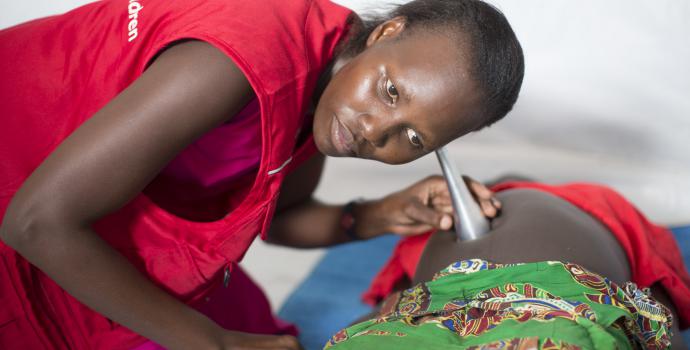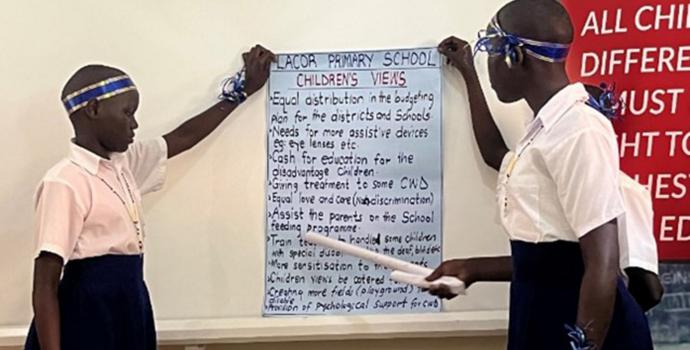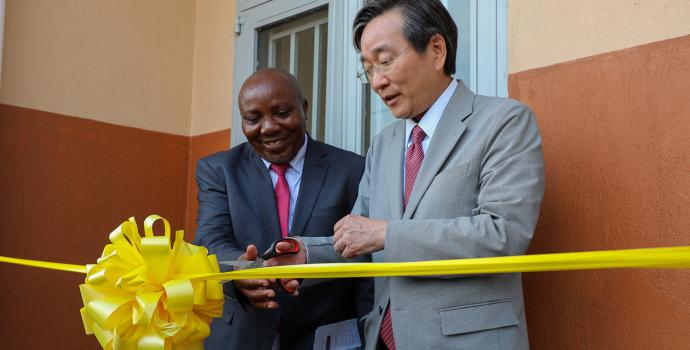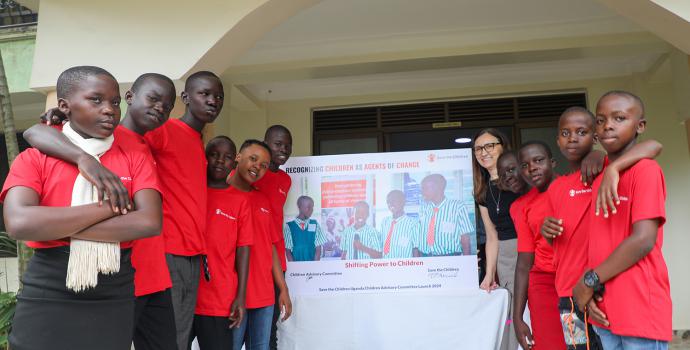A premature baby becomes a happy Christmas present

Irene Kunihira was pregnant and shopping at a busy market just before Christmas when she started to feel ill. “I felt a watery discharge coming,” she says. Already a mother of three children, Irene is used to experiencing pregnancy. But this time she was nervous – she was only at 33 weeks, and her last pregnancy had gone disastrously wrong.
In her previous pregnancy she had been expecting twins. “At 8 months I developed labour pains that came so fast I had to deliver at home with help from a community birth attendant,” Irene recalls. “Although the twins seemed to be fine, after a few hours their condition changed.” Both children died shortly after.
This time, Irene, a 28 years old housewife from Kanyamwirima village in western Uganda, was desperate to give birth to a healthy child. During pregnancy she regularly attended antenatal care at Bundibugyo hospital and was told the importance of trained medical support.
When she fell ill at the market, she immediately rushed home, afraid that something was wrong. “I called my neighbour to escort me to the hospital,” she says. The neighbour first wanted to examine her at home, but Irene knew she should go straight to the hospital. There she was examined by a midwife, Rebecca Nyakato.
“She complained of watery discharge, fever and lower abdominal pain,” says Rebecca. “Upon examination I observed that she had leaking membranes and a high temperature.” The membranes had ruptured and a doctor was immediately called, who confirmed that Irene was in premature labour.
The rates of maternal and perinatal mortality – the death of the mother, and the death of the fetus or child before or just after birth – are very high in rural Uganda, where facilities and medicines are limited and many people have to walk for miles to reach healthcare. Many women give birth at home, which can increase the risk to both mother and child.
Save the Children’s “Baby Cap” project aims to improve access to quality maternal and newborn healthcare in the mountainous Rwenzori region. With funding from Save the Children Korea and in collaboration with the Bundibugyo district government and the Ministry of Health, the project has trained health workers and provided vital supplies. It aims to get mothers like Irene to give birth in equipped institutions, in the presence of trained experts, rather than in the community.
With the project’s support over the past three years, in these institutions Bundibugyo district has achieved a 31% reduction in maternal mortality, a 28% reduction in perinatal mortality, and a massive 51% reduction in neonatal mortality (death within the first 28 days of a child’s life).
Staff at Bundibugyo hospital received training in how to handle sick newborn babies and premature births, like Irene’s. The Baby Cap project also provided the hospital with lifesaving supplies such as neonatal care and newborn resuscitation equipment, oxygen concentrators and cylinders, and incubators.
In the hospital Rebecca gave Irene some drugs. “She said these would help to mature the baby’s lungs,” says Irene.
Just a few days after Christmas, Irene delivered a premature baby girl – underweight at just 2.2 kgs. Rebecca gave the baby vitamin K, antibiotics, and applied ointment to her eyes. She encouraged Irene to breastfeed and showed her how best to hold the baby, like a kangaroo does.
“After completing the delivery I was cleaned up and my baby was tied around my chest with a cloth to keep her warm,” says Irene. This practice, known as Kangaroo Mother Care, provides continuous skin-to-skin contact between mother and baby and has been shown to increase the chances of premature babies surviving and being healthy.
A few days later, Rebecca was satisfied that it was safe to discharge Irene and her new baby, now called Peterson. The hospital staff advised Irene on how to stay clean, avoid showing the baby to visitors, and only to breastfeed. They told her to come back to the hospital for a check-up after six days, or to come back earlier if there were any problems.
Thanks to the hospital, so far both Irene and Peterson are doing well and looking healthy. “I’d like to thank the health workers of Bundibugyo hospital for the good work they did to save my baby,” says Irene.




